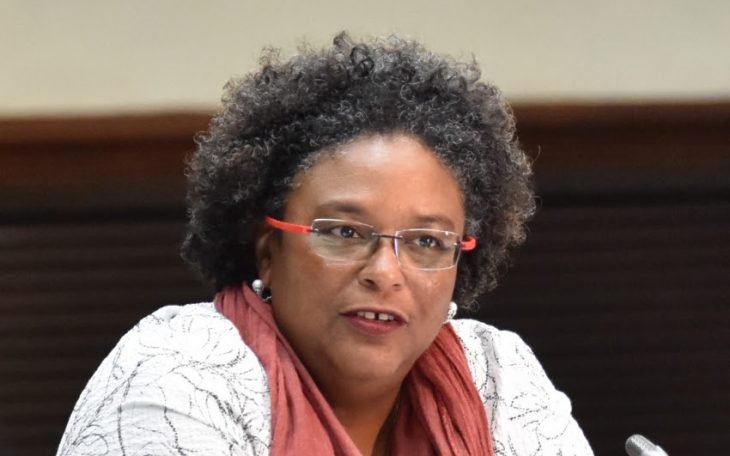(Barbados Nation) There needs to be mature and relevant conversations relating to the debt obligations of middle income, small island developing states across the globe, in the midst of the COVID-19 pandemic.
Prime Minister Mia Amor Mottley expressed this view yesterday as she addressed the 73rd Annual World Health Assembly, held via teleconference.
Mottley said: “Many countries will either have an orderly restructuring of debt, or at the very least a debt moratorium that provides certainty for both the borrower and the lender, or they will have a disorderly unravelling that will create a crisis, both within their respective countries and within the global financial markets.
“These conversations must admit of greater certainty in the management of our affairs, and I pray that the global community will have the courage to allow us to have them.”
She again stated that there was a need for a global leadership initiative, rooted in moral leadership. She noted that moral leadership would finally recognise that the use of historic per capita income to determine access to concessional or grant funds, or to determine fair access to the procurement of goods was unacceptable.
The Prime Minister pointed out that when the circumstances of middle-income countries deteriorate, no review is undertaken which takes into account the inherent vulnerability to which they are exposed, and which prevents them from accessing critical money or goods.
“In addition, the use of certain proxy criteria to access technologies, medicines, vaccines or concessional funds and grants would exclude vulnerable countries such as ours in the Caribbean, some in Latin America and even in the Pacific. Why? Because we are using criteria that are more relevant to fighting problems that have little or no relevance to our current vulnerabilities and challenges.
“For example, we are less than two weeks away from the beginning of the hurricane season. Tropical Storm Arthur has already formed off The Bahamas, well in advance of that start. Many of us are already confronting droughts and the presence of Sargassum weed as the result of the climate crisis, and it is wreaking havoc in our societies. But none of these challenges are captured by per capita income, or by maternal mortality rates. None of them,” she explained.
Mottley added that there was a global market failure where small middle-income states were at risk of not being seen or heard, or not even accessing critical goods and supplies.
She thanked Director General of the World Health Organization, Dr Tedros Adhanom Ghebreyesus, for recently reaching out to the Executive Director of the Global Fund to advocate for the countries in the region that have been excluded from procurement, through the consortium of critical COVID-19 medical supplies. She stressed, however, that the region needed to be included.
“It is also therefore clear that we need additional criteria to determine equitable access and fair allocation – criteria that better take into account that vulnerability which we have. And if we are asking for the same solution for climate, external shocks as we are now asking for the pandemic, it is because all three destroy our capacity to produce as nations and the ability of our people to survive ….
“Equitable access and fair allocation of resources will allow our small states, particularly middle-income ones, dependent on travel to be able to have access to increased supplies for testing, such that we can reopen our societies safely to intra-regional travel, and thereafter to extra-regional travel. But it will also better allow us to ensure that there is a return to safe work, by safe people, the least vulnerable people to COVID-19 in our countries,” she said.
The Prime Minister added that these countries urgently need to get access to adequate numbers of the appropriate tests, in particular the rapid tests that are affordable and reliable, if their economies and societies are to reopen safely.






